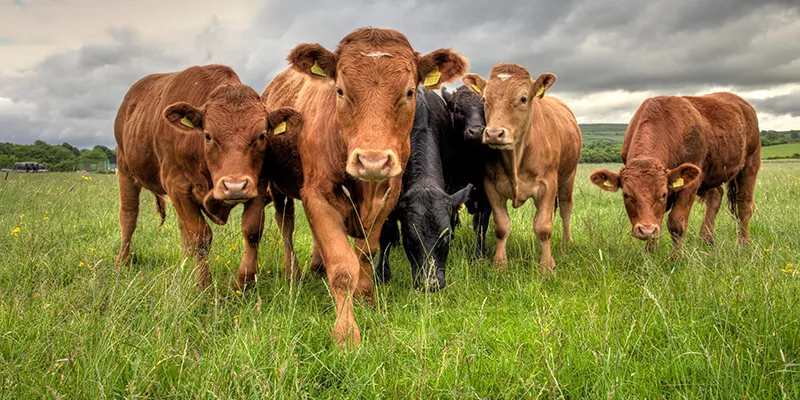Living Labs to address digitalisation challenges in animal production
SustainIT is using a Living Lab approach to study animal health and welfare-related databases, identify barriers for digitalisation and to engage value chain stakeholders in the co-design of solutions for animal production

SustainIT is an ICT-Agri-Food ERA-NET project focusing on the institutional, economic and social barriers of widespread adoption of ICT in relation to animal health and welfare data and on governance of related digital innovation ecosystem. The project uses a Living Lab approach to study animal health and welfare related databases, identify barriers for digitalisation and to engage value chain stakeholders into the co-design of conceptual solutions for adoption of animal health and welfare related ICT solutions.
The aim of the Living Labs is to bring together and to actively and openly involve multiple stakeholders into the research, development and innovation processes. IIn the SustainIT project, the actors are the stakeholders involved in milk and beef value chain, digitalisation and animal health and welfare data. The engagement of farmers, ICT developers, technology providers, animal health and welfare database managers, veterinarians, processing industry, retailers, public sector and researchers in the Living Labs in four countries (Germany, Sweden, Finland and Estonia) provides direct information and improves the understanding on the challenges the different stakeholders face related to ICT adoption. The multiple actors carry different knowledge and experience, and the Living Labs provide them opportunities to exchange this knowledge, to interact and network with other stakeholders and to co-create solutions that benefit all stakeholders.
The Living Labs are both a tool and an outcome. As a tool it provides a structured framework on how to organise activities and cooperation and systematically engage various actors. As on outcome, the Living Lab is a knowledge transfer channel and an evolving network of stakeholders that strengthens the linkages between the innovation ecosystem actors beyond the project period.
ICT holds a lot of promise for helping to address challenges related to climate change, animal welfare, antimicrobial resistance, dietary and consumer trends, efficiency of production. However, the practical implementation of ICT in the agri-food sector has been affected by the various challenges related to the data access, data ownership, data exchange and interoperability issues, lack of ready-made and user-friendly solutions for the end-users, costs of ICT, inconsistent public policies, and lack of innovative business models. The SustainIT project has mapped the animal health and welfare related databases in the four countries, their content, data collection and access, data exchange along the value chain, and needs and challenges of different stakeholders. A consumer survey on the attitudes and interests of consumers towards animal health and welfare data and their dietary and consumption habits provided information on the role and impact of final consumers. A review on the roles of public policies in the in the digitalisation of agri-food sector indicates the need to protect public interests and weaker parties in digitalisation process, and to a need to create an enabling environment for innovation and new technologies. The upcoming topics will iinclude innovative business models related to digitalisation and animal health databases in beef and milk value chain, experiments based on selected digital innovation challenges, and a review of data pools and public governance.
Content: SustainIT
More information:
Contact: anne.poder@piimaklaster.ee
Website: sustainit.ee